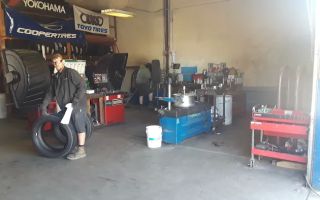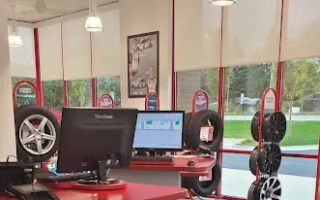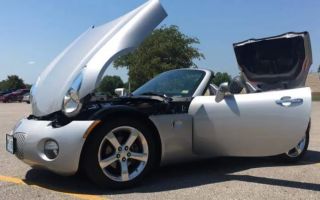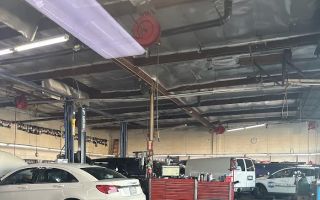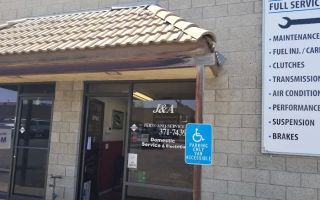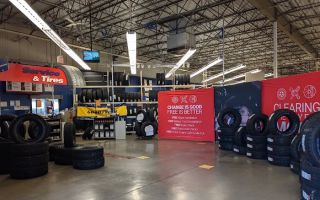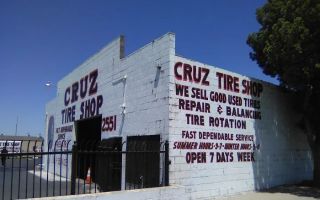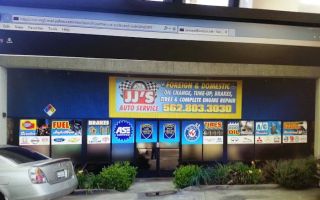Understanding and Fixing Electrical System Failures in Your Vehicle
1. Recognizing Electrical System Failures
Over the years, I’ve had my fair share of vehicle troubles, but few things can be as frustrating as dealing with electrical system failures. I remember one particular morning when I went to start my car, and nothing happened. The lights didn’t turn on, and there was no sound from the engine—just silence. It didn’t take long before I realized that I was facing an electrical issue. But how can you spot these failures before you're stuck in a situation like I was?
Electrical system failures often start with subtle signs that are easy to overlook. One of the first things to check is whether any of the electrical components in your vehicle, such as the lights, radio, or dashboard indicators, are malfunctioning. If these systems flicker, dim, or fail altogether, it’s a strong indicator that something’s wrong. Other signs include difficulty starting the car, intermittent power loss, or unusual smells—such as burning plastic—from under the hood.
If you're experiencing these issues, it’s important to diagnose the root cause early. If you ignore these symptoms, you could end up facing more severe problems, like being stranded on the road or damaging more parts of your car.
2. Common Causes of Electrical Failures
When my car started having electrical issues, I didn’t know where to begin looking. Over time, I learned that electrical failures in vehicles usually have a few common causes. One of the most frequent culprits is a weak or dead battery. If your car won’t start or has trouble starting, the battery might not be providing enough power. Sometimes, it’s not the battery itself but the alternator—the part that charges your battery while driving—that could be failing.
Another common issue is corroded or loose connections, which can cause intermittent power failure. If the battery terminals are dirty or the wires are loose, electrical current may not flow properly, resulting in malfunctioning lights or other components. I once had to clean the terminals on my battery, which were so corroded that the car wouldn’t start properly!
Fuses and relays can also cause electrical failures. These tiny components protect your vehicle’s electrical circuits from damage, and if they blow or malfunction, it can cause a complete failure of certain systems. The good news is that replacing a fuse is typically a simple and inexpensive fix. However, if a fuse keeps blowing, it might indicate a deeper electrical issue that needs professional attention.
3. How to Diagnose Electrical System Issues
When my electrical issue arose, I knew I had to perform some basic diagnostics before calling for help. One of the first steps I took was to check the battery. I used a multimeter to measure the battery’s voltage, which should be around 12.6 volts when the car is off and about 14 volts when the car is running. If your readings fall outside these ranges, the battery or alternator may be faulty.
Next, I moved on to inspecting the fuse box. I took out each fuse one by one to check if any were blown, which can be identified by a broken filament inside. I even used a simple test light to check if power was reaching various parts of the electrical system. If a fuse was blown or a wire had no power, it was a clear indicator that something was wrong.
Another diagnostic step involves inspecting the wiring. I carefully looked for any visible fraying, damage, or signs of corrosion on the wires under the hood. Since wiring issues can be harder to spot than a blown fuse, this process required a bit more patience. However, once I identified any worn-out or frayed wires, I was able to address the problem directly.
4. Fixing Electrical System Failures
Fixing electrical issues in your vehicle may seem daunting at first, but many problems are straightforward to address with the right tools and knowledge. In my case, after diagnosing the issue, I was able to resolve it without a professional mechanic. Here's a simple guide to fixing some of the most common electrical failures:

Pick Your Part - Help Yourself
1232 Blinn Ave, Wilmington, CA 90744, USA
4.1 Replacing a Dead Battery
If you find that your battery is dead, replacing it is usually the most straightforward solution. First, make sure you have the correct battery for your vehicle. Always wear gloves and safety glasses, and carefully remove the old battery, starting with the negative terminal to avoid sparking. Then, replace the battery with a new one and secure it tightly. Finally, reconnect the terminals, making sure the connections are clean and tight to ensure optimal performance.

Pick Your Part - Greer
13054 E Wade Hampton Blvd, Greer, SC 29651, USA
4.2 Cleaning and Reconnecting Corroded Terminals
Corrosion on the battery terminals can interrupt power flow, but it’s easy to clean. I used a mixture of baking soda and water to neutralize the acid buildup on my battery terminals. After scrubbing away the corrosion with a wire brush, I ensured the terminals were properly tightened, which immediately improved the connection and my vehicle’s electrical performance.
4.3 Replacing Fuses
If a fuse is blown, simply replacing it will often restore functionality to the affected systems. Be sure to use the correct fuse size and type for your vehicle's systems. It's a good idea to keep a spare fuse kit in your car, as this can save time and hassle in case of future electrical issues.
4.4 Checking and Repairing Wires
If you find frayed or broken wires, you may need to replace or reattach them. For minor damage, I was able to use electrical tape to insulate and secure the wires. However, for more significant damage, replacing the wire altogether is often necessary. This task requires some knowledge of your vehicle's wiring system, so if you're unsure, it's best to consult a professional mechanic.
5. Preventing Future Electrical Issues
After resolving the issue, I made sure to take steps to prevent future electrical problems. Regularly maintaining your vehicle’s electrical system is key to ensuring longevity and preventing failures. I now check my battery’s health every few months and clean the terminals to avoid corrosion buildup. I also keep an eye on fuses and wiring, making sure they’re intact and secure.
Investing in a good-quality battery and keeping your electrical system in top shape can go a long way in preventing frustrating failures on the road. Regular vehicle inspections can help catch small issues before they turn into major problems.
If you find yourself in need of professional help, don't hesitate to consult a mechanic or use a towing service. At Rescue & Towing, we can connect you with the best towing companies to assist you in any roadside emergency. Whether you're facing electrical problems or other vehicle issues, we're here to help you get back on the road safely.

